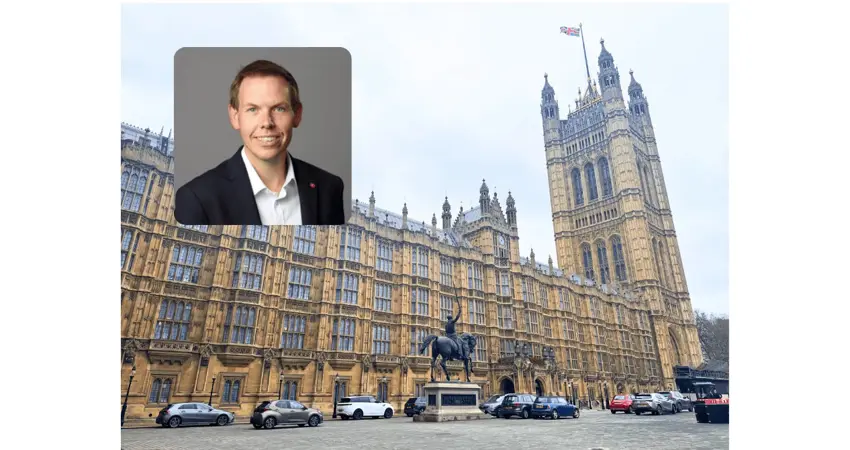03 Apr 2025
Prof Paul Shearing attends All Party Parliamentary Engineering Group at House of Lords
The event aimed to encourage young people to pursue careers within the engineering industry and to promote the best of the British engineering industry

On 4th February 2025, the Director of the ZERO Institute, Professor Paul Shearing, presented to The All Party Parliamentary Engineering Group at the House of Lords, chaired by Professor the Lord Mair. Other speakers included Dr Kristen MacAskill, Associate Professor in Engineering, Environment and Sustainable Development, University of Cambridge and Professor Andy Sloan, Managing Director and Senior Vice-President, COWI UK.
The APPEG events, which cover topics ranging from nuclear energy and aerospace engineering to biomedical engineering, aim to encourage young people to pursue careers within the engineering industry and to promote the best of the British engineering industry. More than 100 Peers, MPs, students, apprentices and school children studying STEM subjects attended the event at The House of Lords to contribute to wide reaching discussions on the energy transition.
The ZERO Institute (Zero-carbon Energy Research Oxford) supports research, education and policy making across all aspects of the zero-carbon energy transition. As Director of the Institute, Professor Shearing works to shape ZERO’s ethos, strategy, networks, research and teaching programmes. He also holds the Royal Academy of Engineering Chair in Emerging Battery Technologies.
During the event, Professor Shearing highlighted the UK's significant progress toward net zero, including the recent decommissioning of the nation’s last coal-burning power station. He emphasised the challenges of renewables, such as the need for energy storage and flexibility, and stressed that global collaboration is essential for decarbonising sectors like manufacturing and transport.
He says, “I was incredibly impressed with the depth and breadth of topics covered, and particularly by the contributions of the many students and school children in attendance. Their insight and understanding on far reaching topics, from battery chemistry to planning consent, demonstrated their affinity with climate-tech, their understanding of the climate emergency and their motivations to make a difference”.
Attendee Amelie from UTC Portsmouth asked for the speakers’ thoughts on the switch to electric cars. Professor Shearing explained, “The reason I got into battery technologies and now hold an engineering chair in this field is because of the electrification of road [transport]. Since then, we've worked tirelessly to improve EV batteries, leading to much greater adoption in the UK. While electric cars have become more affordable and higher performance, there's still work to do as the batteries need to be cheaper, last longer, and charge faster. We're researching next-gen technologies to reduce critical materials like cobalt and make batteries more sustainable. The goal is to electrify all transport, from cars to helicopters, and eventually explore even larger challenges.”
He went on to discuss the potential for the next big shift in battery technology. “We could move to lithium-sulfur batteries, which could replace cobalt with cheaper materials like sulfur. Another option is sodium-ion batteries, which are cheaper and more abundant than lithium. Solid-state batteries, which replace liquid with solid materials, offer higher performance and safety. The ultimate goal, however, is to crack the use of metallic alkaline metals, like lithium, sodium, or potassium, which could create batteries with ten times the energy density, representing a massive leap forward.”
The next generation of engineers will be crucial in taking forward efforts to achieve Net Zero. Professor Shearing adds, “Reaching Net Zero, and revolutionising the energy system is one of the greatest challenges of our time, to achieve this we need to address a significant skills shortage. Engineers will play a critical role in this, alongside social and physical scientists, policy makers, economists and many others. The energy transition demands multi-disciplinarity and supporting the next generation of researchers and practitioners to deliver Net Zero is central to our work at The ZERO Institute.”




